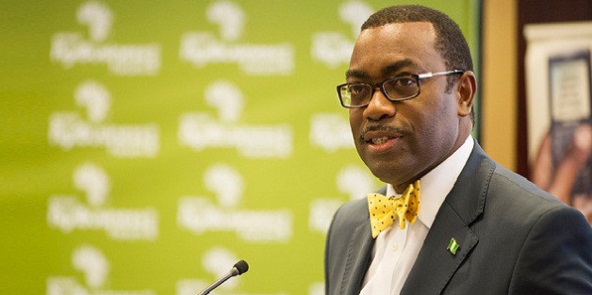The African Development Bank (AfDB) has so far invested about $1 billion on small businesses and infrastructure in Africa, president of the bank, Dr Akinwunmi Adesina, has said. Dr Adesina disclosed this on Monday in Malabo, Equatorial Guinea, at a press conference to herald the AfDB’s 2019 Annual Meetings, due to open Tuesday in the central African country.
ADVERTISEMENT The theme of this year’s meetings is ‘Regional Integration for Africa’s Economic Prosperity’.
Regional integration gained momentum with the agreement on the African Continental Free Trade Area (AfCFTA) in March 2018 and is now at the threshold of its launch next month.
ADVERTISEMENT The AfCFTA will constitute the world’s largest free trade area, consolidating an integrated market of 1.3 billion consumers with a combined gross domestic product (GDP) of about $3.4 trillion. It is estimated that Africa’s GDP growth could reach 6% a year in a continent without borders (UNECA).
Answering questions from journalists, Adesina said the bank has invested around $1 billion through various initiatives, including cross border infrastructure, to move trade across African borders. According to him, most of the investment has gone to small and medium enterprises – the engine of economic growth.
He said the bank is committed to accelerating Africa’s integration process.
In the last five years, the bank has invested more than $15 billion in the construction of regional infrastructure in energy, transport and ICT, he added.
He said some of the projects include a $93.8 million loan for the long-awaited Trans-Gambia bridge linking the Gambia and Senegal, resulting in a 50% cut in freight costs and improved transport, health and education services for 900,000 local people.
Earlier in the morning at a media breakfast, Adesina underscored the importance of regional integration in Africa. “If we get our integration right, Africa will be more competitive; will be able to create a massive amount of jobs and, more importantly, Africa can develop in dignity and confidence,” he said.
The annual meetings will be an opportunity for experts, governments, businesses, civil society, think tanks and academia to share their candid assessments on regional integration efforts and dialogue on critical issues concerning Africa’s development.













